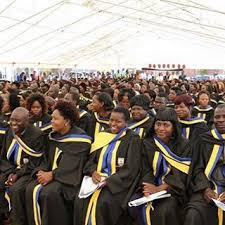
A quiet but growing crisis is unfolding across Zimbabwe’s education sector, one that reveals more than a gender imbalance.
As the nation rightly celebrates the advancement of women in teaching and other professions, a worrying trend has emerged: men are slowly disappearing from the classroom.
What appears at first to be progress for gender equality has exposed a deeper social question: are men and boys being left behind in the changing order of empowerment?
Recent statistics from teacher training colleges tell a striking story.
At the United College of Education, 464 out of 505 graduates were female, an overwhelming 91.9%.
Seke Teachers’ College recorded 621 female graduates and only 41 male counterparts, while Joshua Mqabuko Nkomo Polytechnic produced a mere eight male primary school teachers compared to 132 females.
Nationally, women now make up about 61% of Zimbabwe’s 153,453 teachers, dominating early childhood and primary education, while men are mostly visible only at secondary and tertiary levels.
There is no doubt that this represents progress for women, a triumph for equality and access to opportunities that were once denied.
- More woes for suspended Cottco boss
- News in depth: Zimbabweans choke under weight of worsening service delivery failures
- Former MDC MP in trouble for insulting police
- Antipas scoops monthly PSL awards
Keep Reading
However, it also signals an imbalance that carries far-reaching consequences.
The disappearance of men in the teaching profession is not just a workforce issue; it mirrors a deeper emotional and psychological disengagement among men and boys in society.
Historically, masculinity in African culture has been tied to strength, authority, and the role of provider.
Yet as economies evolve and social roles shift, many men are struggling to locate their identity in spaces that demand empathy, patience, and care, qualities that the world still wrongly labels as feminine.
Teaching, once considered an honourable calling for both men and women, is now often dismissed by men as a woman’s job.
This perception is quietly disempowering men, pushing them out of professions that require emotional intelligence and mentorship, the very qualities society desperately needs from its male figures.
The impact of this absence extends far beyond the classroom.
Boys growing up with few or no male teachers lose the chance to witness healthy, balanced masculinity in action.
They miss out on role models who could teach them that strength and kindness can coexist, that authority does not have to be harsh, and that leadership can also mean compassion.
Without this balance, many boys struggle with identity, often turning to misguided forms of masculinity built on dominance or emotional suppression.
From an early age, boys are told to man up, to hide their feelings, and to view vulnerability as weakness.
Over time, this conditioning breeds men who are emotionally detached and fearful of intimacy, men who struggle to express love, empathy, or pain.
Without platforms for emotional growth or support, many internalize stress and anger, leading to depression, violence, or withdrawal from community life.
The shrinking number of male teachers, therefore, is not just a career choice; it is a reflection of this broader social silence.
To address this, society must begin to redefine what it means to be a man.
True strength lies not in domination but in depth, in the courage to be empathetic, to mentor, to serve, and to feel without shame.
Men must be encouraged to see value in nurturing professions, including education, counselling, and community work.
These roles do not weaken masculinity; they enrich it.
Higher and Tertiary Education deputy minister Simelisizwe Sibanda recently called for national reflection on the declining number of male teachers.
His words echo a necessary reminder that gender empowerment should never translate into gender exclusion.
The success of women in education is a story worth celebrating, but empowerment must be balanced and inclusive.
When one gender dominates to the exclusion of the other, society loses the harmony that diversity brings.
Empowerment is not a zero-sum game.
It should not mean that as women rise, men must fall. Instead, it must represent the collective advancement of both genders, complementing rather than competing.
Zimbabwe’s classrooms, like its communities, need both feminine warmth and masculine guidance to nurture balanced, emotionally intelligent generations.
If men continue to retreat from teaching and other nurturing roles, the country risks raising a generation without visible male mentors, without the calm discipline, protection, and empathy that grounded men bring to society.
The classroom has always been a mirror of the nation.
Its current imbalance reflects a deeper truth: as men disappear from spaces of influence, the entire social fabric weakens.
Empowering women must continue, but alongside that mission must come a new vision that empowers men to rediscover purpose beyond power.










